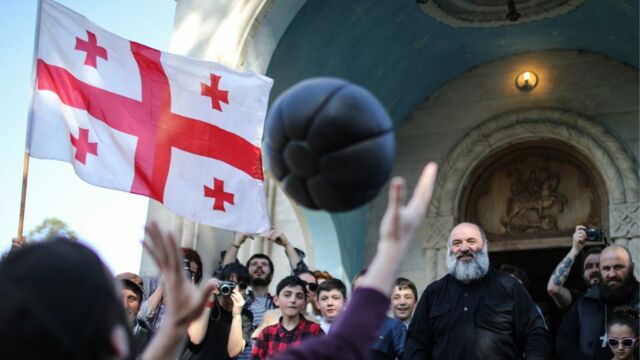The rules of Lelo, a sport that has been practiced in Georgia for at least three centuries and that could be compared to a very violent version of rugby, are very simple. After the starting whistle is blown, a priest launches a 15kg leather ball, full of sand and sawdust and sprayed with holy wine, into the air.
Discover our latest podcast
An orgy of cathartic violence
The hundreds of men around who are playing, fuelled by alcohol and adrenaline, scramble haphazardly towards the ball and don’t hold back when it comes to tackling and attacking others. The risks of being trampled, crushed or trapped with no chance of getting themselves out are extremely high.
An infernal chaos is immediately started, and the players scramble and fight to get their hands on the famous black ball for hours, trying to get it back to one of two goal lines that would signal the end of the game. A mix of rugby and fighting, Lelo is played every year in Georgia during Orthodox Easter. In the city of Lanchkhuti in the Gourie region, this sport is played between two streams that are located at equal distance from the city centre. The gardens and bus stops are also part of the playing field.
'We play because of our self-pride'
During this immense fighting match, some Georgians do get hurt and some even die, which is completely accepted by people who take part and their supporters. The participants know which team they belong to using imaginary geographical borders that have been previously established.
Gela Pirtkhalaishvili, an experienced player also known as ‘The General’ explained to Vice:
We make rules: You cannot hit a person who has fallen. And when someone has fallen and is hurt, everyone holds their hands up in the air. We are controlling all of this. We also developed a strategy of how to steal the ball from the opponents.
This is a national sport that participants take part in as a matter of honour, but Lelo is not recommended to all athletes, far from it in fact. 'The General' adds:
We are all crazy – that’s why we play. We play because of our self-pride. We have warrior’s blood, but we are not invaders like the Mongolians.















